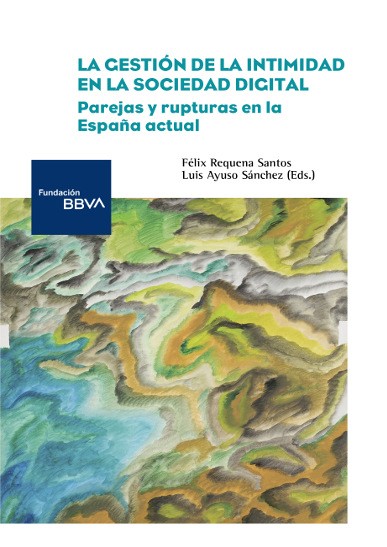
PublicationMonographs
La gestión de la intimidad en la sociedad digital
Parejas y rupturas en la España actual
This book examines the way that Spanish couples manage the process of forming a partner relationship and the dynamics of their life as a couple, as well as break-ups and their consequences. It takes a sociological approach to a highly relevant topic with a bearing on the social structure and quality of life of Spaniards, which to date has received little research attention in our country.
The research design started from an extensive review of the national and international literature. Based on this, the authors developed an original theoretical framework integrating diverse perspectives that would serve as a guide throughout the study. Data were collected using methodological triangulation (quantitative, qualitative and network). Specific sources were the fertility survey Encuesta de Fecundidad (INE, 2018) and the third wave of the general social survey Encuesta Social General Española, ESGE (CIS, 2018). A novel qualitative study was carried out, with nine discussion groups and 27 interviews with couples (81 in all). This data was supplemented by an analysis of the social networks of 104 participants. Its exploitation has allowed to combine the perspective of coupledom according to age groups (young, middle-aged and older couples); to look in depth at different couple typologies, and to study “face-to-face” partner relationships and those mediated by ICTs.
The results evidence the important transformations under way in the private sphere. The processes of forming a partner relationship are lasting longer throughout the life cycle, with greater acceptance of plurality. New technologies have served to expand dating markets and new values are accentuating this trend, giving rise to a rich diversity of sexual-affectionate relationships that has an impact on stable coupledom projects. Major differences by age emerge from 65 onwards. Domestically, despite a negative perception of the impact of ICTs, communication within the family is increasingly intense, and aspects like reconciliation, caregiving, money or sexuality are more explicitly present in the conduct of private life, with a trend towards greater gender equality. Break-ups are more common across all generations, a situation treated with moe equanimity than in the past. The factors behind them are primarily emotional, with a need for greater emotional management at every age. Network analysis reveals the particular nuclearization of partner relationships in Spain, with fewer children and more weight being given to digital networks and friends, albeit without losing structural links.
The book is aimed at all those with an interest in family and partner relationships, from professionals and academics in sociology, psychology, law or economics, among others, to civil society in general.
